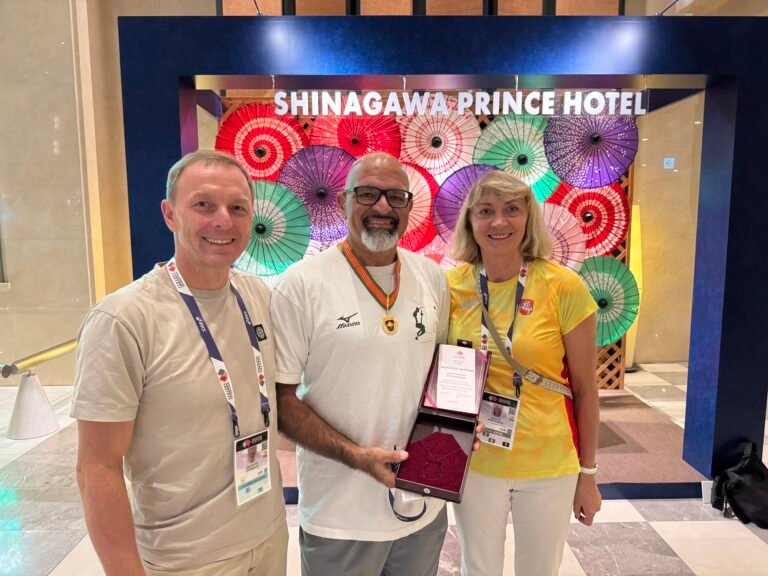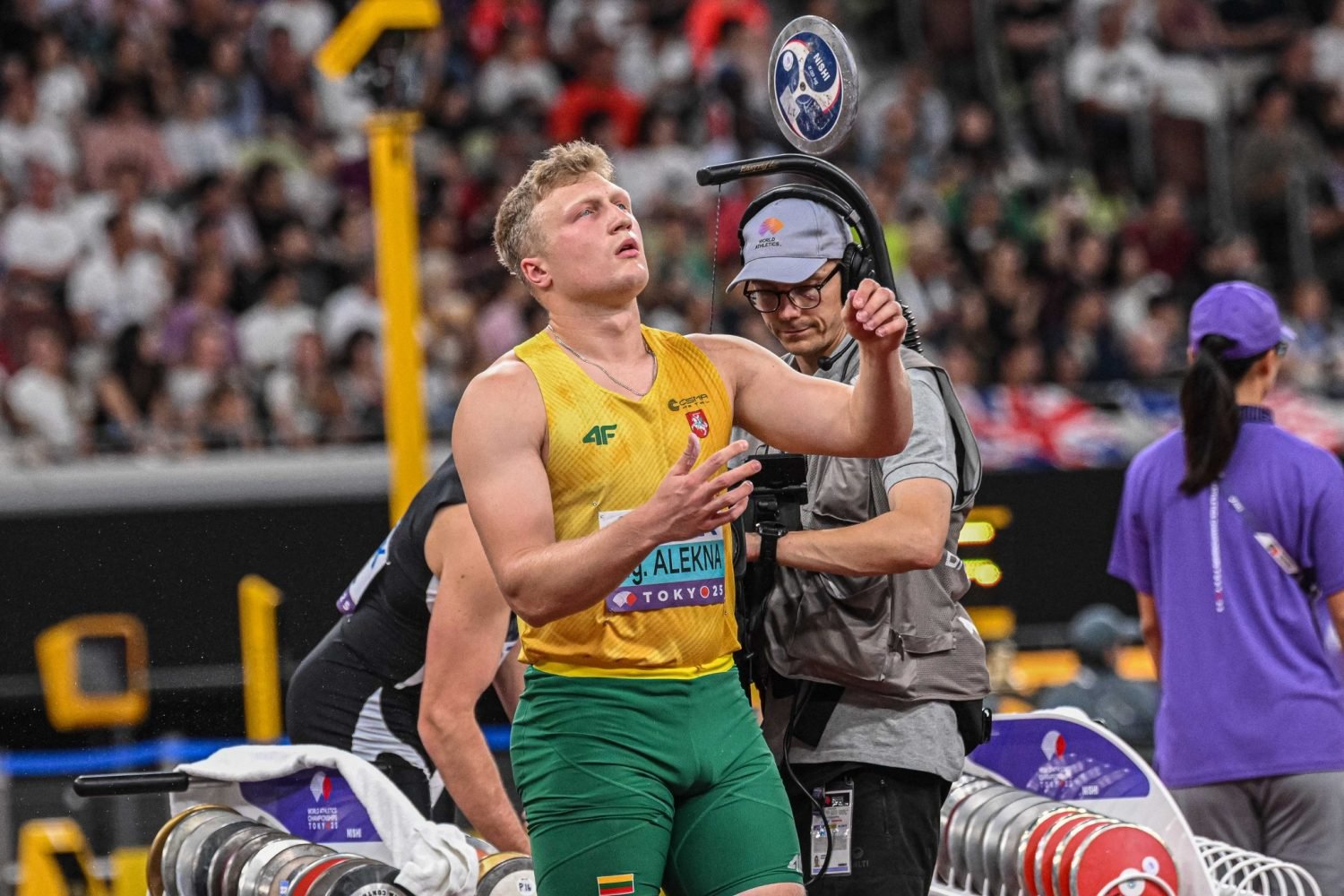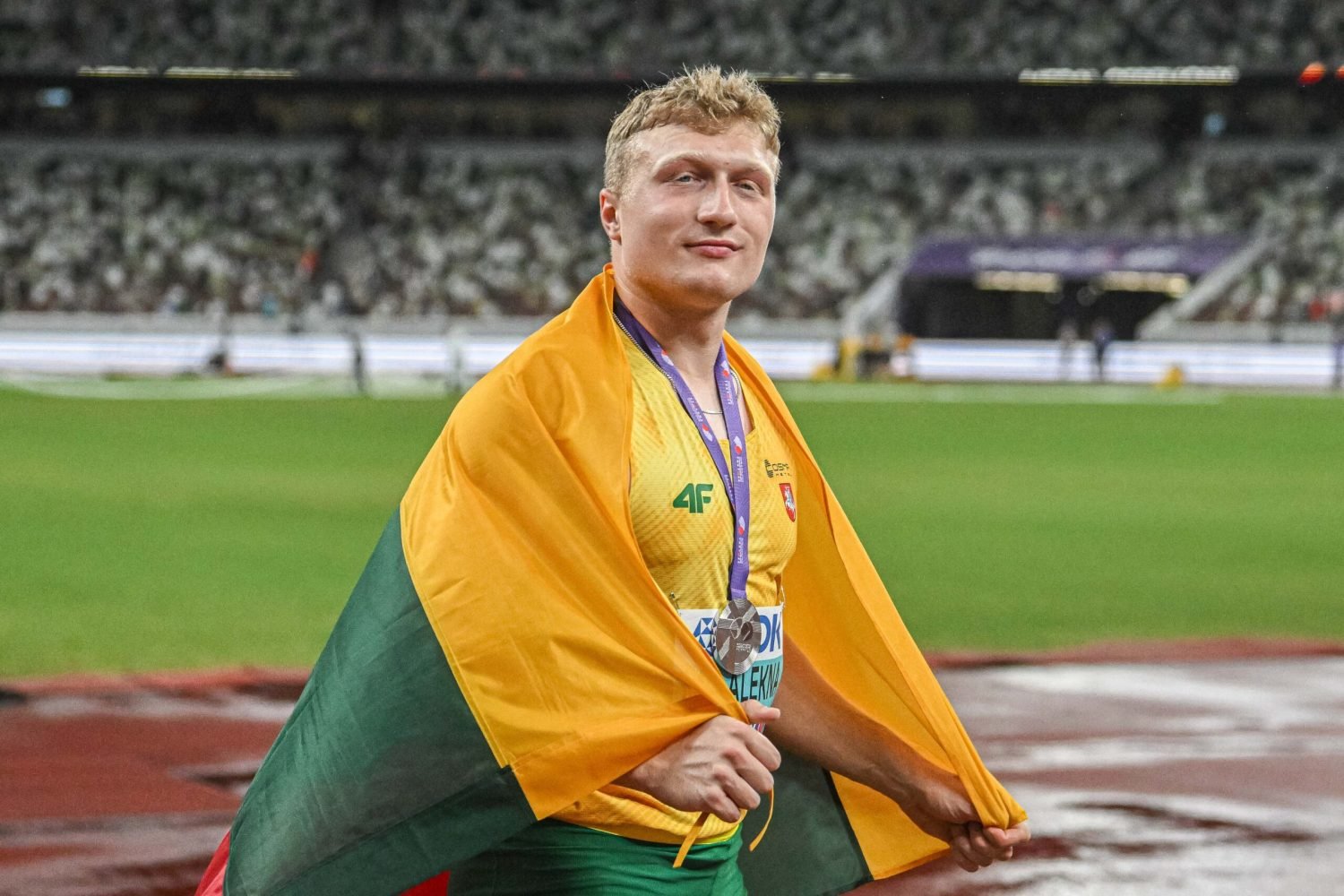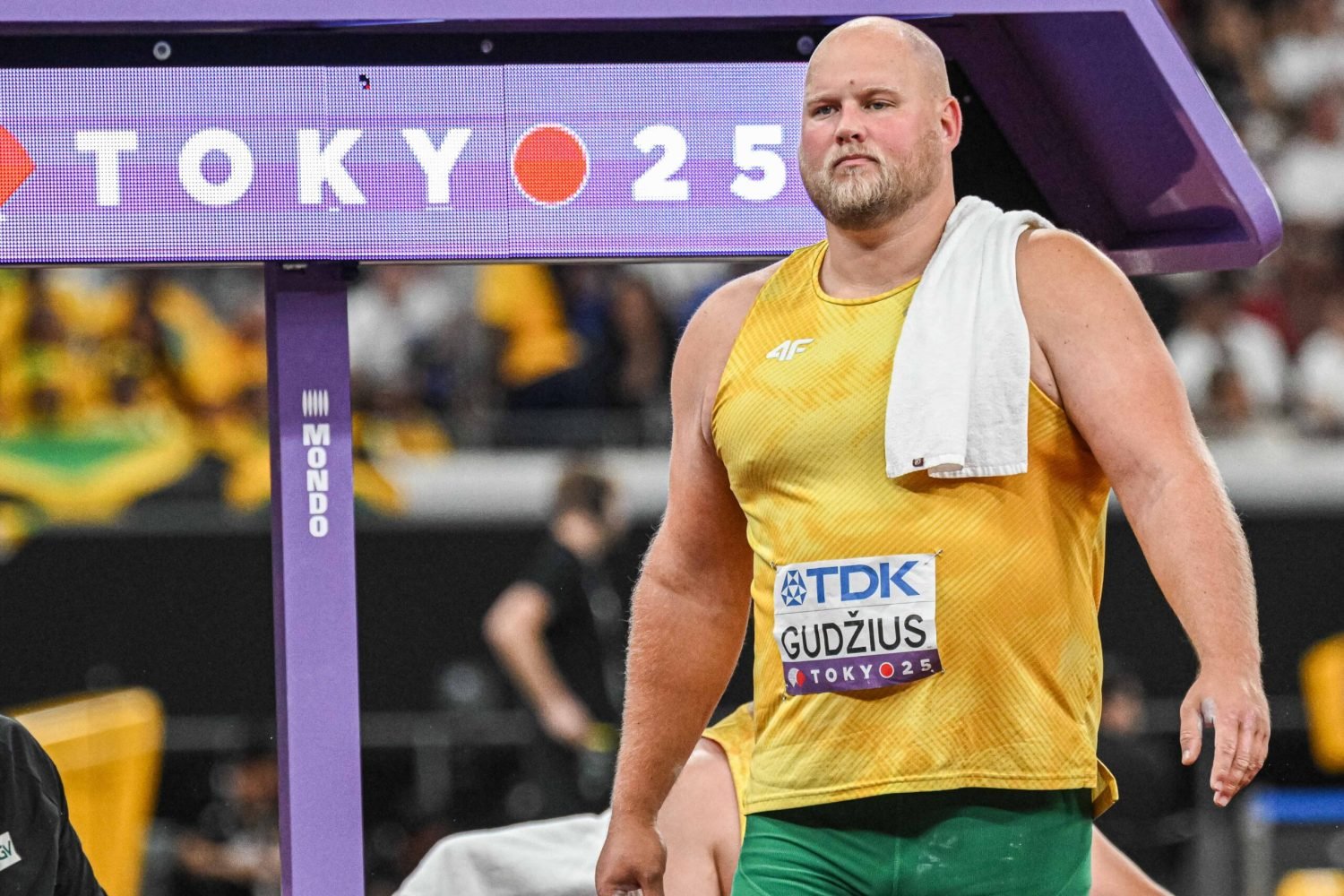“This destruction of the functioning sports system has no future,” says Eimantas Skrabulis, president of the Lithuanian Athletics Federation. The long-time track and field guide stands up against the destruction of the National Sports Agency (NSA) and disagrees that Lithuanian sport is at unprecedented lows.
After Monday’s meeting in the Seimas on a new sports project aimed at reducing the functions of the NSA and giving leverage to manage sports and its funding to the National Sports Council, E. Skrabulis was pleased with the reaction of the sports public to the country’s sports events, which the former sprinter described as a vision.
– Athletes returned from the World Athletics Championships with a medal, two more athletes made it to the 8th, and a total of eight to the 16th. What do you think about such a performance? Do you agree that the championship was very successful for Lithuania? , lengvoji.lt asked E. Skrabulis.
– The World Championship in distant Japan was the last chord of a long season. We had youth championships, a youth Olympic festival, for the first time we participated in the strongest division of the European Team Championship and achieved many Lithuanian records, one of which was a world record. For a country like Lithuania, these are really great numbers, but everything is crowned by the competition of the year – the World Championship. The statistics don’t lie, he was one of the most successful: a medal, eights, 16ths. We delegated 11 athletes who competed in 10 events. There are 10 more athletes left at home who could apply to go to the highest ranking competition. Getting to the World Championships and the Olympic Games is difficult, and a very limited number of athletes do it. The fact that we have the Mykolas Alekna medal is great. It’s a pity that I haven’t seen such weather conditions in the 14 championships I’ve watched. Daniel Stahl is a top-level athlete, he managed the situation and showed that it is difficult to overcome even for a world record holder.
There were also successful championships in 2022 in Oregon and 2017 in London, which shows that we are heard and seen, we can compete with the best in the world. If this year’s championship had not taken place in Tokyo, I think the results would have been even better, because not all athletes were able to manage the challenges of acclimatization. I remember the words of the legendary Virgilijus Alekna “I never understood when to go to a competition when it takes place in the Far East”. We are a sport of more than one competition and not one athlete. We have 3-4 athletes who, if they are healthy, could fight for medals in the World Championships and Olympic Games and 5-6 who could fight for medals in the European Championships.
– Although Lithuanian athletics is at the top, we hear from politicians that the country’s sport has never been in such lowlands…
– I think that Lithuanian sport is in the lowlands, only those people who do not understand sport at all or have very bad advisers, are poorly informed, can claim. A lot of noise was caused by the fact that we sent record small national teams to both the Tokyo and Paris Olympic Games. There is a hidden untruth here, because those who say so did not mention that for the first time in history, the men’s basketball team did not go to the Games. If we added 12 men to each delegation, we would have had a strong, standard Olympic team. In sports, as in life, there are ups and downs, but I categorically disagree that Lithuanian sport is in the lowlands. We are 27th out of 200 participating countries in the World Championship medal rankings. We have overtaken many recognized countries where athletics is popular. I’m not just talking about athletics, there are also swimmers, rowers, modern pentathlon and cycling who constantly win medals. The same basketball is returning to the medal divisions. There are many sports in which our athletes, even if they won’t win medals, will at least fight for high places.
There are things to be solved in sports, improved, that’s true. Lithuanian sport has two poles: one of them is those federations, those people in sports who create a product, who work year after year, sacrifice for sport and live for sport. There is also the other side that shouts, screams, but actually does nothing. They don’t live for sports, but they live from sports – this part of the sports community is really unnecessary for Lithuania. Let’s not forget that the noise is now being made by the group of organizations led by my same “colleague” Daina, who influenced the destruction of the Department of Physical Education and Sports (KKSD). KKSD had a good enough work, specialists and it was very good for the sports community. After its destruction, a vacuum appeared and when the Ministry of Education, Science and Sports temporarily took over the functions of sports management, a few years were really very bad. After the creation of the National Sports Agency, there was initially a lack of competencies, a lack of people, many issues were solved in the wrong way, too slowly, but in a few years the work of the agency improved – transparency appeared, criteria appeared. In sports, you can’t break anything and change it just to change – it will only make it worse. The Lithuanian National Olympic Committee (LNOC) lost its influence on the state funds allocated to sports due to the change in the funding system, which automatically reduced its influence on the sports community. They have been trying to regain their lost influence for some time by any means.
– It seems that the sports community has never been so united against the Lithuanian National Olympic Committee. Can it be said that sports people have their eyes opened?
– I would say yes. The same people who destroyed the KKSD in their time are now trying to destroy the National Sports Agency, which is functioning quite well. Everything is happening because of the influence on sports, sports money and it is very unfortunate that that goal is understandable only to the sports community. The sports community is starting to wake up, and more and more federations are seeing that such principles, which are applied by the LNOC or the Union of Lithuanian Sports Federations, are unacceptable in a progressive society. As we know, four federations expressed their opinion and for this they were punished by the Lithuanian National Olympic Committee, waving the Olympic Charter, without granting the usual financial grant. The same people who wave the Olympic Charter actually hide it very deeply when they politicize and make agreements with certain selected parties that are not the function of the Olympic Committee. They themselves claim that they are not responsible for the preparation of athletes, and now they want to delegate selectors who will elect experts from the National Sports Council. Who are you to delegate? In reality, you give very little to Lithuanian sports, although you can. You don’t actually create a sports product, you don’t participate in everyday production. Those people, those federations that actually work, are saying more and more boldly that this cannot be the case. Clairvoyance happens very slowly, but it happens. I am glad that the sports community is going in the direction that the cultural community has gone and is not afraid to express its opinion. It is good that there are people in the Seimas who understand and love sports. This destruction of the sports system has no future. Those federations that work and want to work will continue to grow stronger and unite. I have no doubt that there will be even more victories in Lithuanian sports, even more medals will be brought to Lithuania, and the Olympic team will be more numerous.
– The International Court of Arbitration for Sport (CAS) is considering two cases against the LNOC. What is the current situation in the courtrooms?
– All I can say is that not many national Olympic committees have had two CAS cases in a short period of time. The Lithuanian National Olympic Committee has worked hard and was appealed to the International Court of Arbitration for Sports by the Lithuanian Triathlon Federation for manipulation in the LNOC elections. Another case is that four federations – biathlon, cycling, tennis and athletics – sued the LNOC for discrimination for expressing an opinion, which is absolutely incompatible with democratic principles. Whatever the decisions of the CAS, the very fact that two lawsuits have been accepted says a lot. In the next few months, there will be solutions and I believe that CAS will delve into the issues. The biggest problem of Lithuanian sport is how the LNOC leadership and the members of the Executive Committee loyal to it operate. They are engaged in the destruction, blackmail and discrimination of those people who have been working for the benefit of Lithuanian sports for several decades. If it weren’t for them and their working principles, I have no doubt that the achievements of Lithuanian athletes would be much better.




